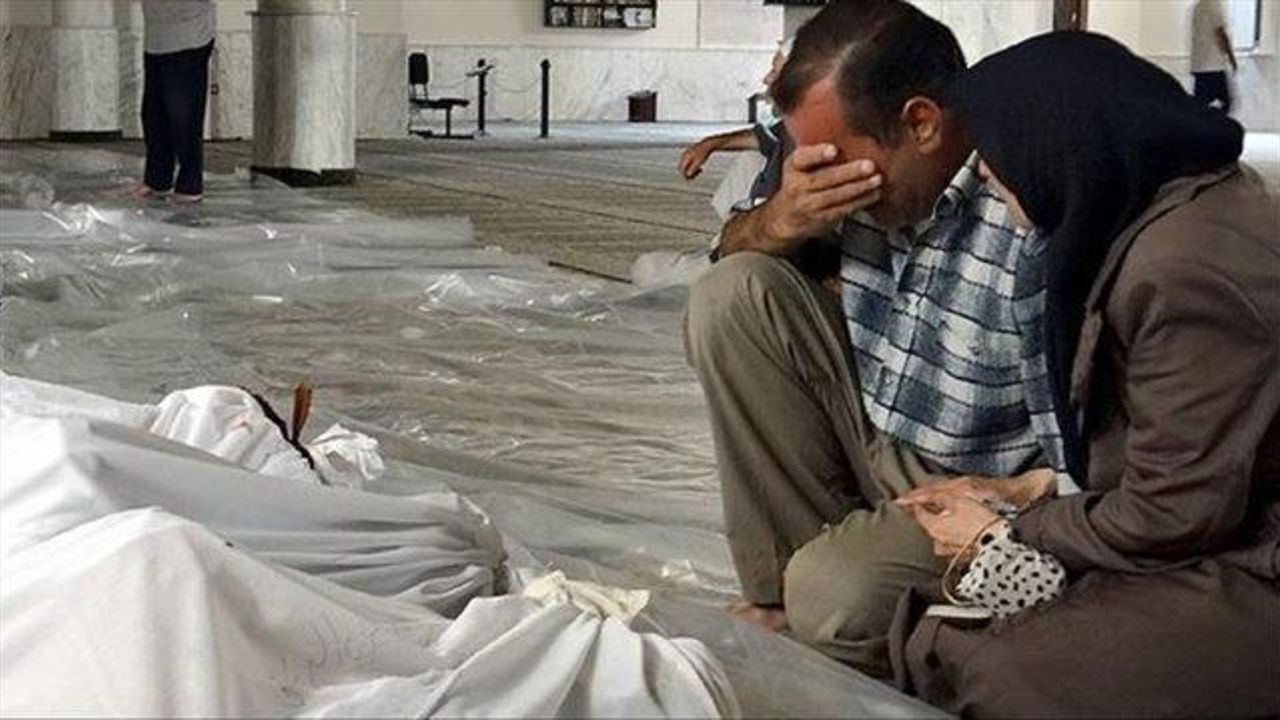Syria regime launches gas attack near Damascus
Syrian regime forces on Thursday attacked opposition positions in the Jobar district of Damascus with chlorine gas, according to local sources.

In a statement, officials at the Jobar medical center said that 10 opposition fighters had been affected by the attack.
Yusuf al-Bustani, a member of a local coordination committee in the capital’s Eastern Ghouta region, said regime forces frequently target Jobar and Eastern Ghouta with chlorine gas.
“The regime is also attacking the de-escalation zones. Assad’s forces are failing to comply with the ceasefire agreements,” al-Bustani said.
Earlier this week, he added, regime forces had also struck opposition positions in Eastern Ghouta’s Ain Tarma and Zamalka districts.
On Saturday, Syrian opposition spokesman said over 30 opposition fighters had been affected by a regime attack -- likewise featuring chlorine gas -- in Eastern Ghouta.
Late last month, the Organization for the Prohibition of Chemical Weapons claimed that sarin gas had been used in an April 4 attack on the village of Khan Sheikhun in Syria’s opposition-held Idlib province.
During talks held in Astana in early May, Russia, Turkey and Iran agreed to establish a network of "de-escalation zones" in different parts of Syria.
According to the agreement, the zones -- in which acts of aggression are nominally prohibited -- would cover the city of Idlib and certain parts of Latakia, Homs, Aleppo and Hama provinces, as well as Damascus, Eastern Ghouta, Daraa and Quneitra.
Syria has been locked in a devastating civil war since March 2011, when the Assad regime cracked down on pro-democracy protests with unexpected ferocity.
According to UN officials, hundreds of thousands of people have been killed in the conflict, while millions more have been displaced.
Anadolu Agency







